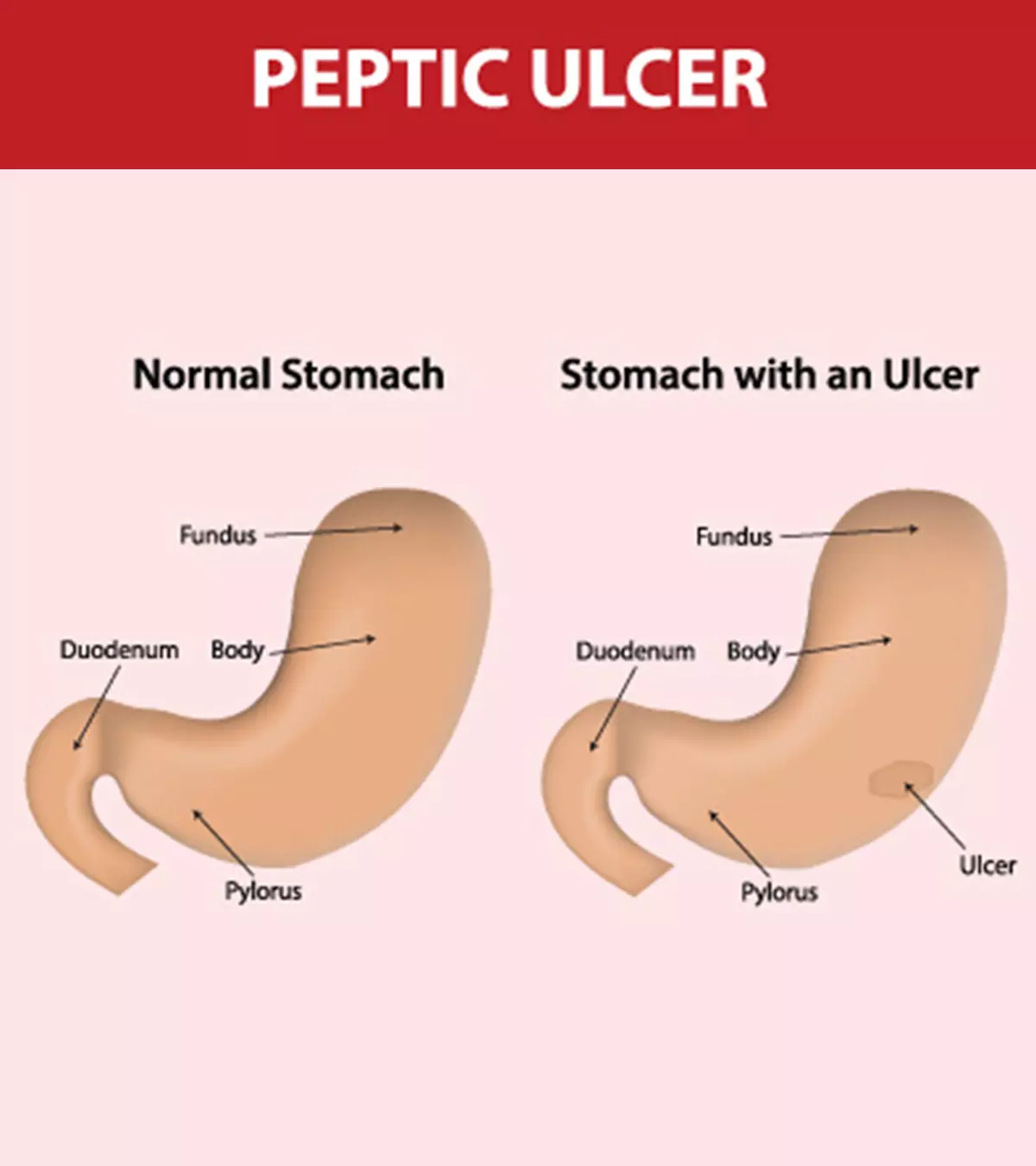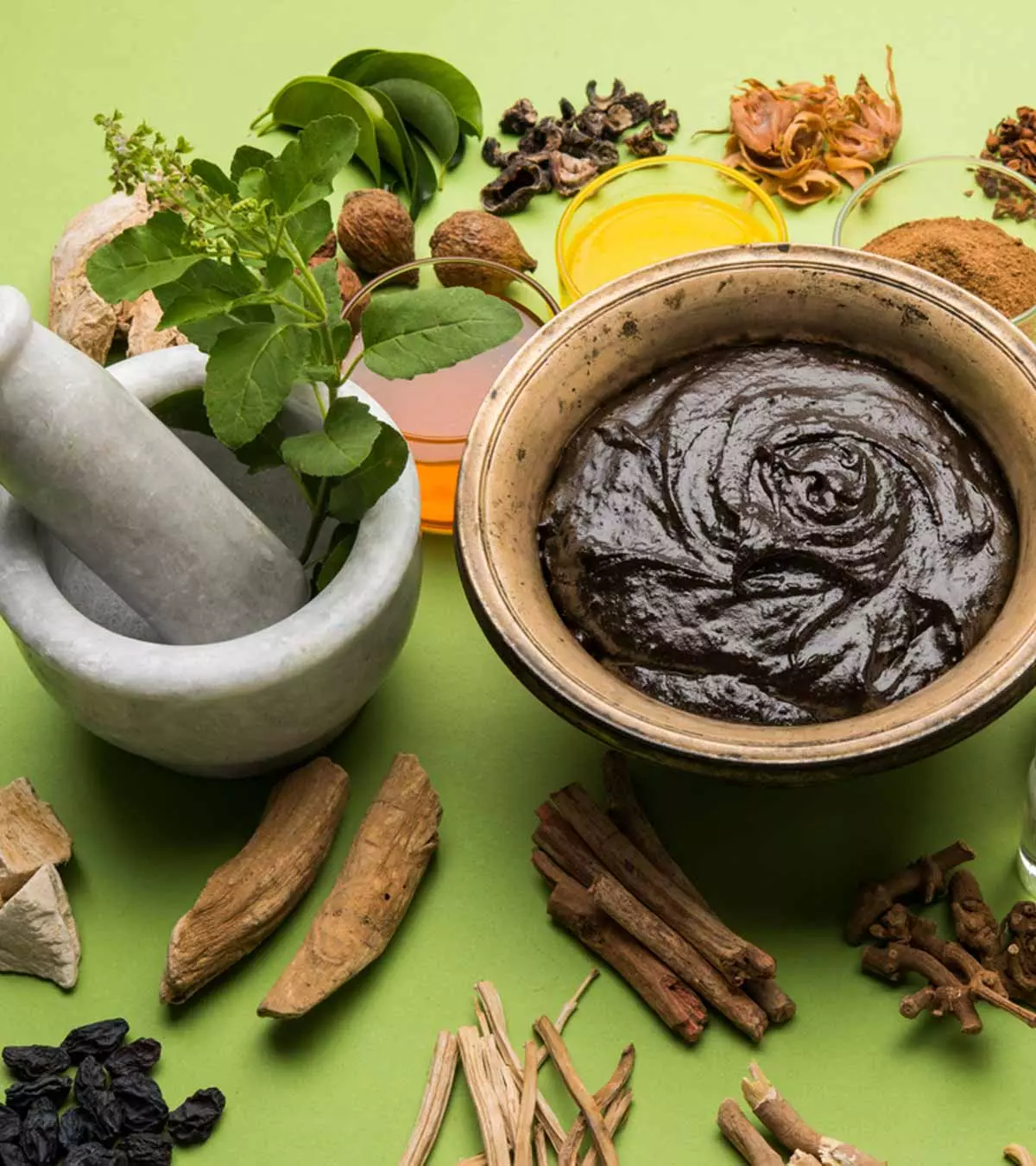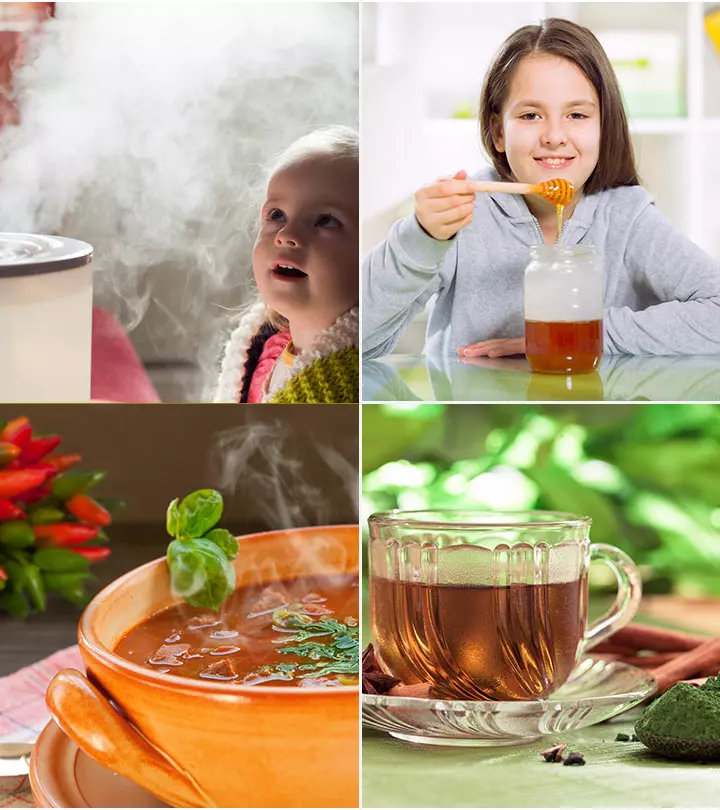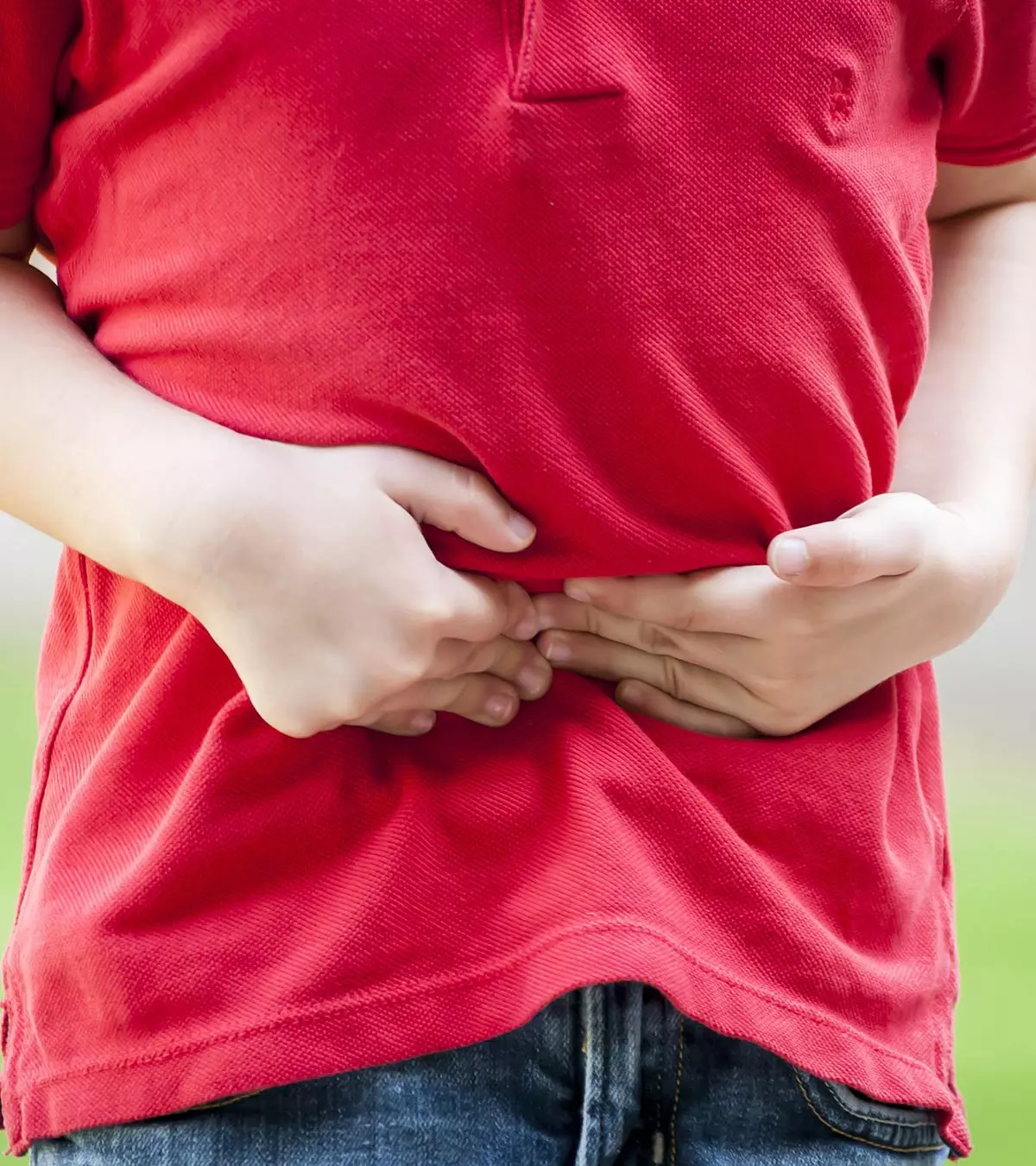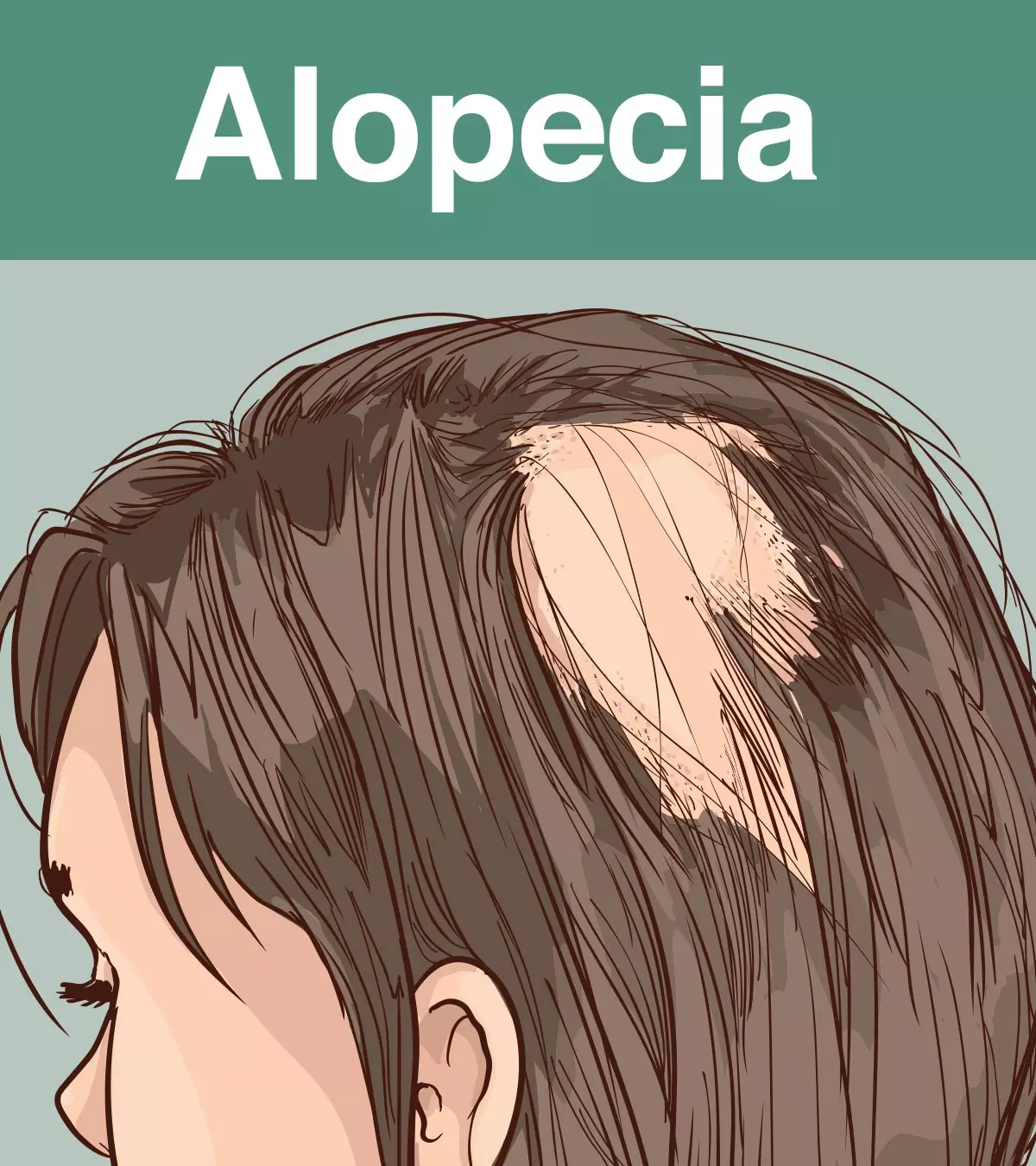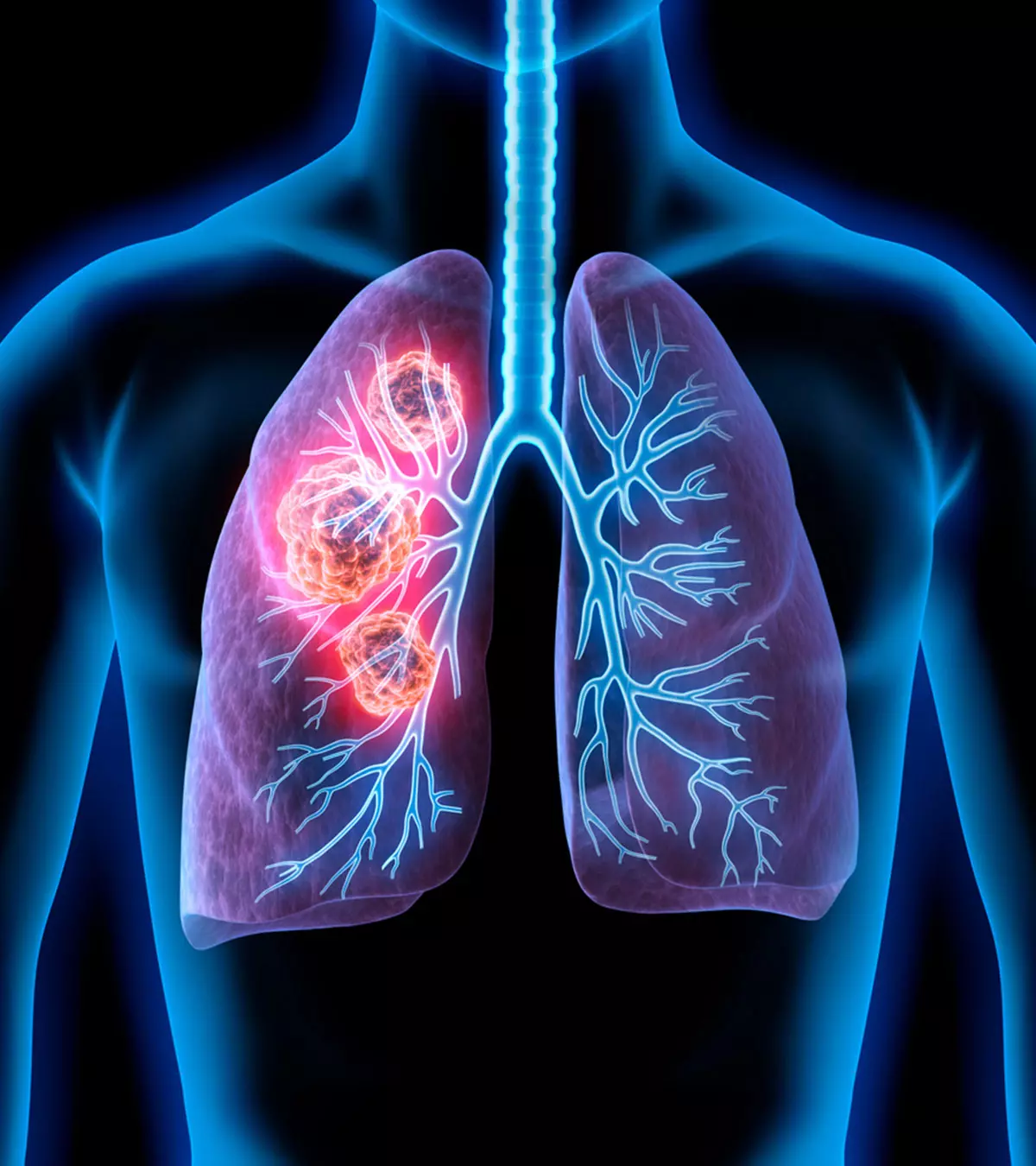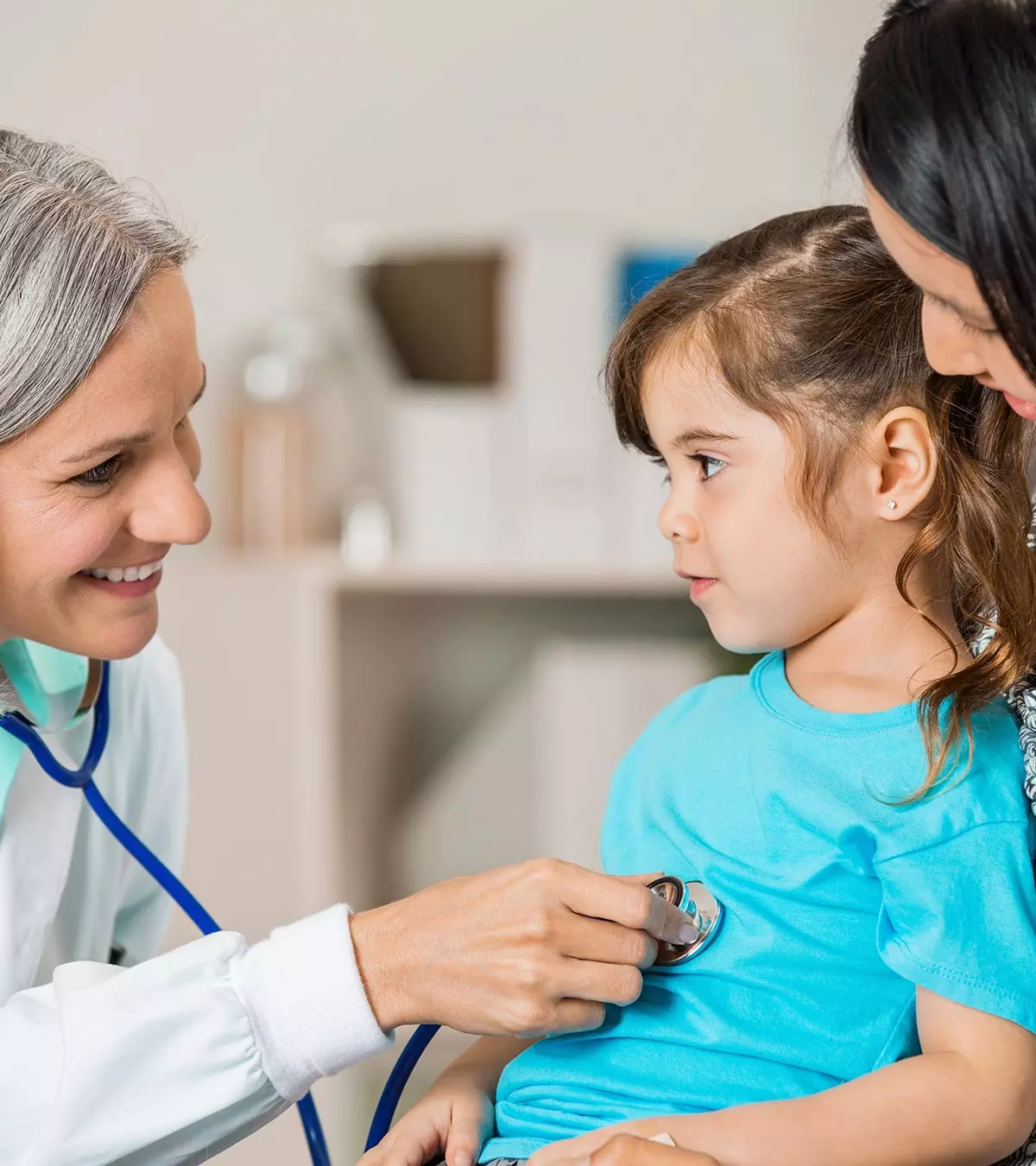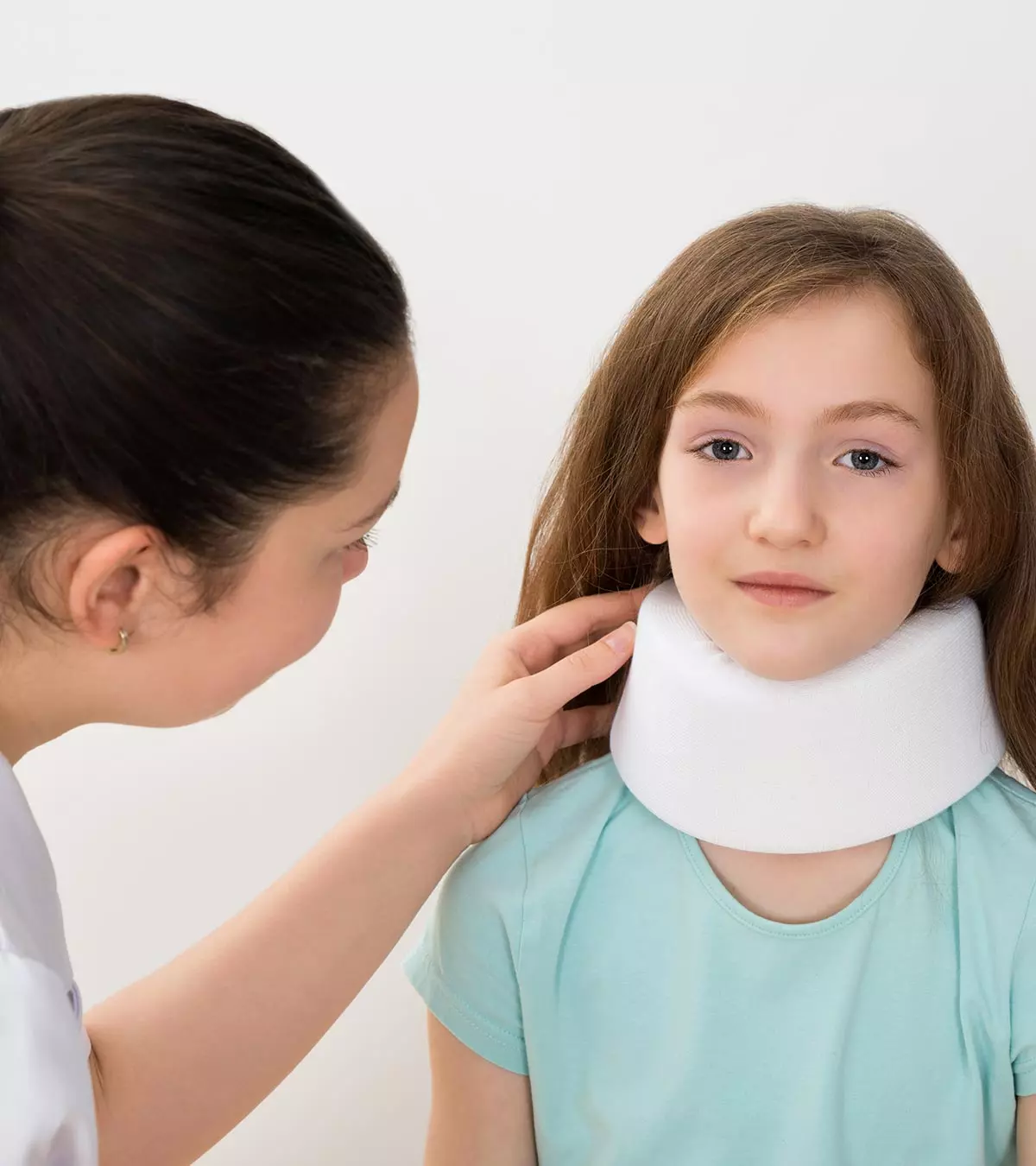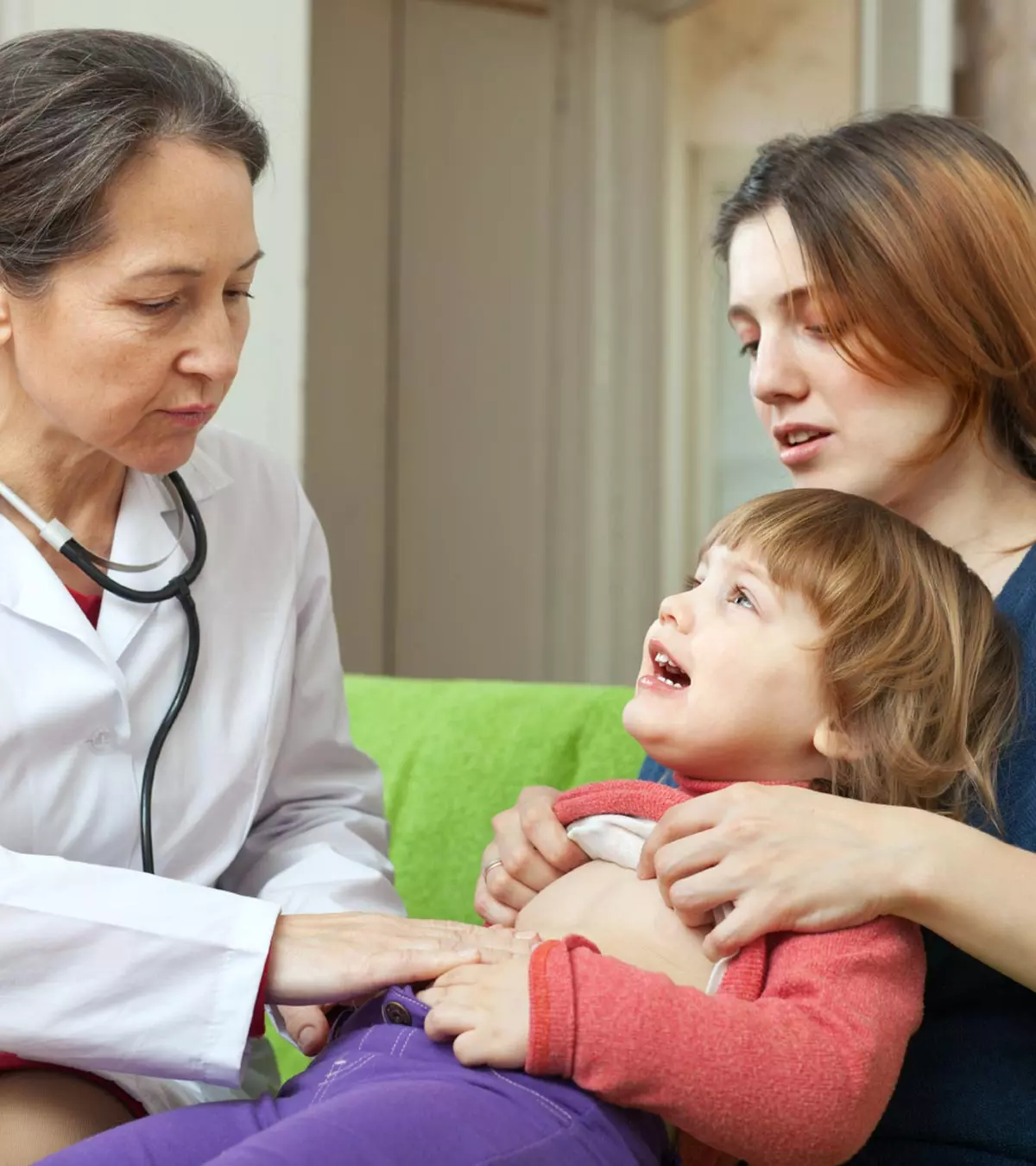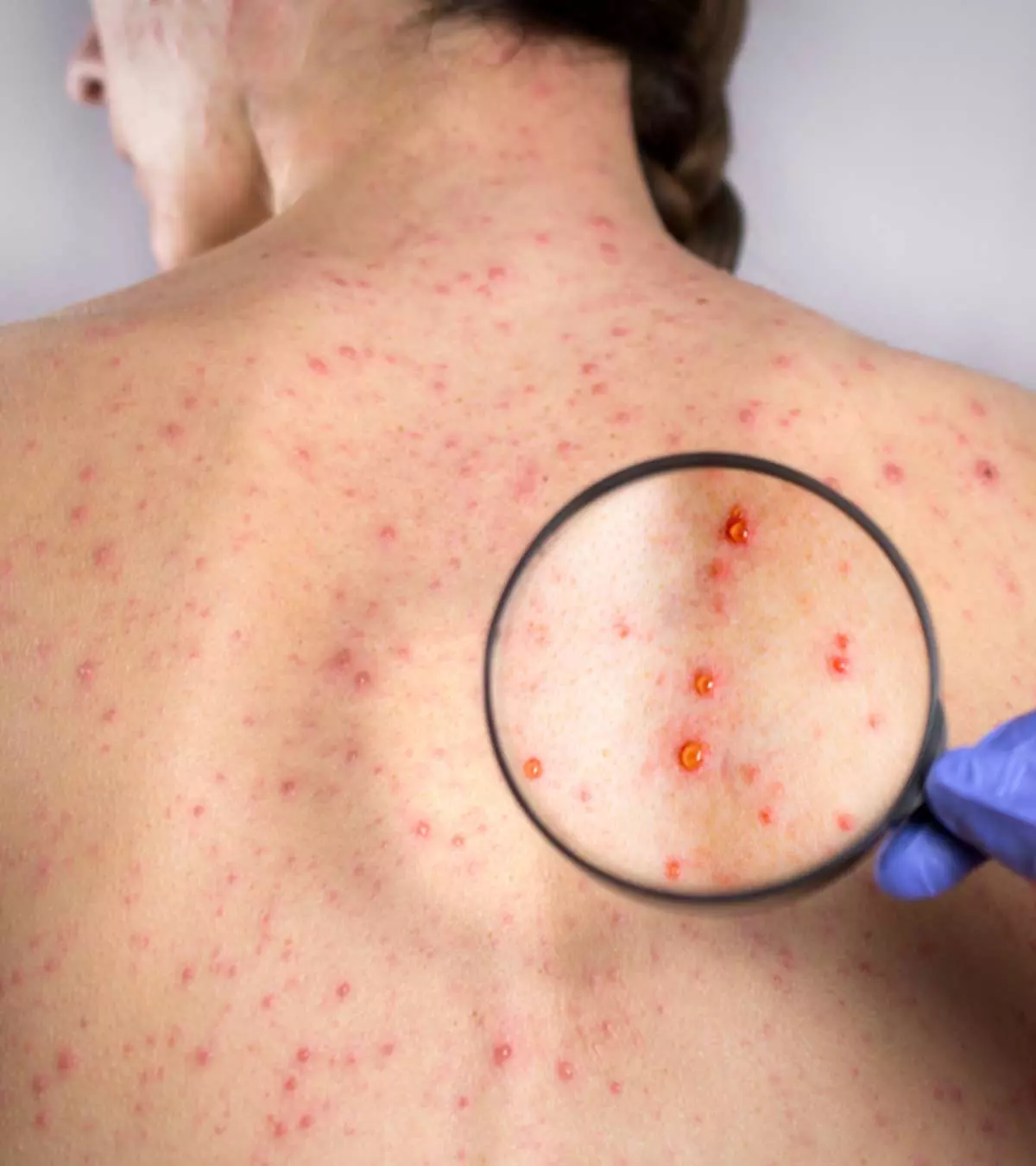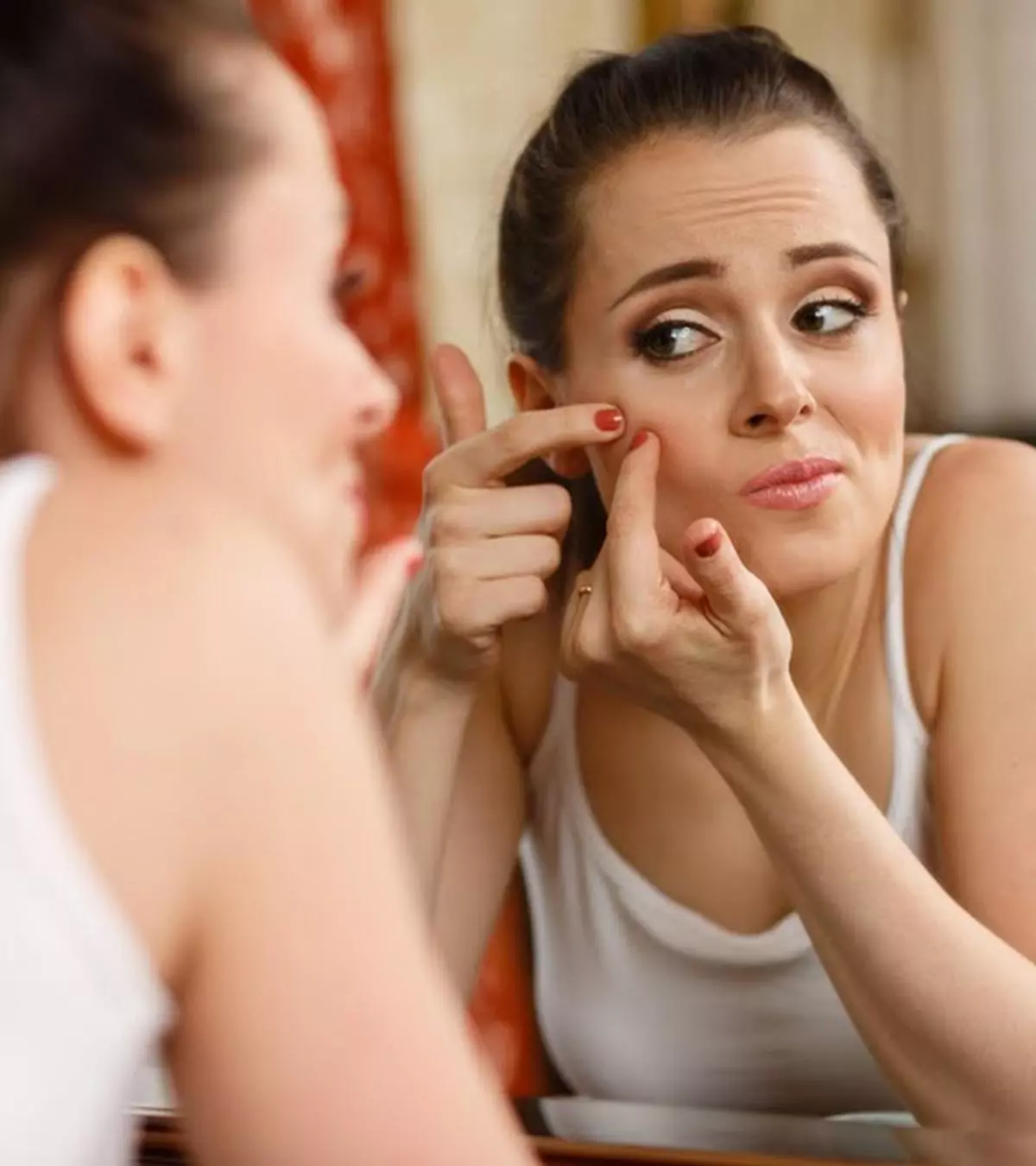
Image: Shutterstock
Teenage acne or pimples are common problems among most teens that might affect their self-confidence. Thus you should know some ways on how to get rid of teenage pimples naturally. Pimples are small red bumps that are often seen on the face. They are caused due to clogged pores, oily skin, or bacterial buildup on the skin cells and can often be treated with the help of home remedies or certain medicinal ointments. Read on to know about the common causes of acne/pimples and a few ways to manage them at home easily.
Key Pointers
- Acne in teenagers is typically attributed to factors such as oily skin, bacteria, stress, diet, and hormonal imbalances.
- Using oil-free face washes containing benzoyl peroxide can exfoliate the face, unclog pores, and kill harmful bacteria.
- Adopting dairy-free and low glycemic diets that are rich in zinc, vitamins, and omega-3 fatty acids can potentially reduce the incidence of acne in teens.
- Trying home remedies such as applying a honey and cinnamon face mask, using tea tree oil, applying green tea gels and creams, staying hydrated, managing stress, and engaging in regular exercise may help manage acne in teens.
What Causes Acne In Teenagers?
An increase in the levels of hormones during the teenage years causes the sebaceous glands (oil glands within the skin) to produce more sebum (oil). The oil clumps with the dead skin cells and other debris, blocking the hair follicles and leading to acne (1). These blocked pores get infected by a bacteria C. acnes, leading to inflammation. Research findings indicate that more teenage girls than boys have acne. Among adolescents, 53% of the females have acne while 47% of the males have it. However, the incidence of acne among boys may decrease as they grow older, as shown by the graph indicating fewer men having acne than women.

Teenage acne group between the sexes
Source: Adult Acne Versus Adolescent Acne; Journal of Clinical and Aesthetic DermatologyAcne due to hormonal changes may not cause serious problems. When left untouched, the pimples or zits will fall off without leaving a scar. However, blocked follicles can get painfully inflamed, and in some situations, may get infected. It can lead to discomfort and may also make acne more prominent.
 Did you know?
Did you know?When Does Teenage Acne Go Away?
Usually, teen acne goes away once you cross puberty. However, in some, it could last a little longer, and this could be because of various reasons such as diet, stress, and hormonal disturbances (2).
In the next section, we tell you about a few home remedies that may help in reducing the intensity of pimples or zits naturally.
12 Ways To Manage Teen Acne At Home
The following remedies may help reduce the intensity of teenage acne. The solutions may not provide a complete cure from acne in teenagers but are still worth a try.
1. Wash the face with an oil-free face wash
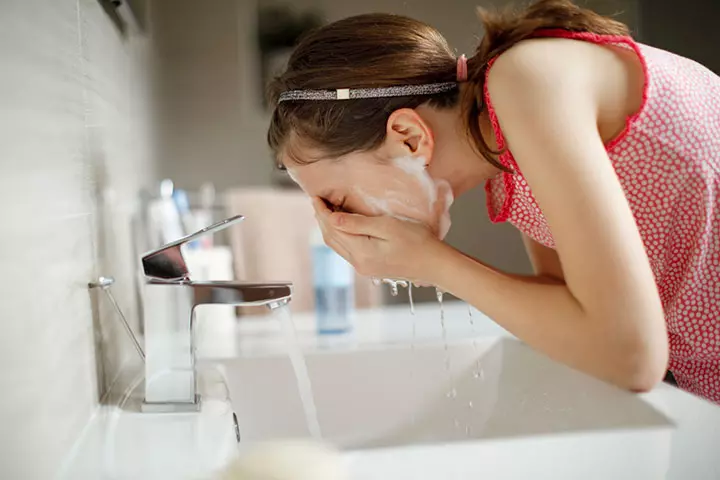
Image: IStock
Buy an oil-free face wash and clean the face twice a day, once in the morning and once at night. once in the morning and once at night. Use only a small quantity to clean the face without scrubbing the skin. Pat dry the skin with a towel instead of wiping it clean. You can pick a face wash that incorporates exfoliation to help remove the layer of dead skin on the surface. Less dead skin and dead cell debris may reduce the chances of clogged follicles.
Face washes with a compound called benzoyl peroxide, which kills the harmful bacteria on the skin and unclogs the oil ducts, can be used for acne. Benzoyl peroxide cleansers can be bought over the counter without a prescription (3). Pick a face wash that contains 5% benzoyl peroxide and use it only once a day for a week. After a week, use it twice a day for up to four or six weeks to attain relief from acne.
 Quick tip
Quick tip2. Consider zinc products
Research suggests that zinc and its compounds may help reduce the intensity of acne (4) (5) (6). The topical use of zinc oxide may be helpful as it absorbs oil and reduces the redness of the skin (7).
Oral consumption of zinc may provide relief from acne. However, if the teen is eating a healthy diet, then they may not need zinc supplementation because it is found in a variety of foods, including wheat germ, oatmeal, sesame seeds, poultry products, seafood, and meat (8).
3. Vitamins
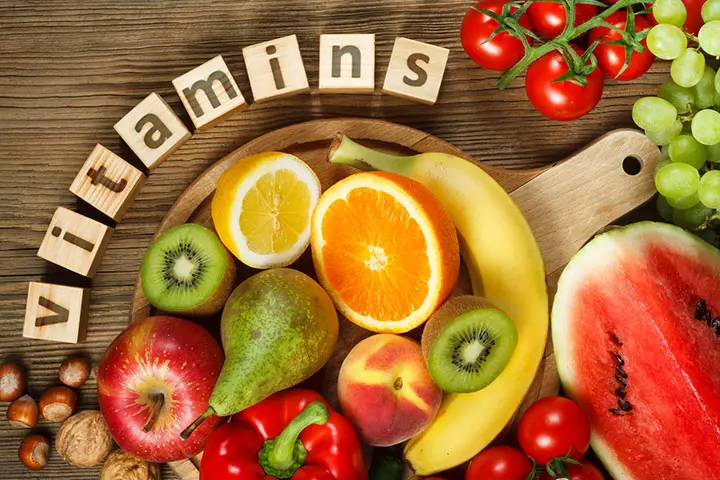
Image: IStock
A study found that those with acne may have low levels of vitamin A and E in their bodies (9). Adequate intake of these vitamins may reduce acne and improve the skin condition. But the American Academy of Pediatrics states that vitamin A supplements “could be not only unnecessary but dangerous as well” (1). The academy says that you must speak to a pediatrician if you consider providing vitamin supplements to your teen.
A safe and healthy source of vitamin A for a teen is fruits and vegetables. According to the Harvard T.H. Chan School of Public Health, the following foods are good sources of vitamins A and E in the diet (10) (11).
Dietary sources of vitamin A
- Leafy green vegetables; spinach and broccoli
- Yellow and orange vegetables: pumpkin, squash, carrots and sweet potatoes
- Tomato
- Mango
- Red bell pepper
- Fish oils
- Milk
- Eggs
Dietary sources of vitamin E
- Oils from seeds and legumes; sunflower, safflower, wheat germ, coconut oil and soybean oil
- Nuts such as almonds, peanut
- Spinach
- Green leafy vegetables; beet greens, collard greens, and asparagus
- Fruits like avocado and mango
- Pumpkin
- Red bell pepper
A diet with adequate vitamins A and E may help reduce the intensity of acne and lead to clearer skin.
4. Honey and cinnamon face mask
Research suggests that a combination of honey and cinnamon powder can work against acne-causing bacteria (12). Certain natural compounds in these food items may act against the proliferation of Propionibacterium acnes and Staphylococcus epidermidis, the bacteria associated with the formation of acne. Thus, honey and cinnamon powder are effective natural remedies for treating acne.
A honey and cinnamon homemade face mask for teenagers can be used once or twice a week.
Here is how you can prepare the face mask:
- Mix one teaspoon of cinnamon powder with one tablespoon of honey.
- Wash the face, pat it dry, and apply the mixture evenly on the face.
- Leave it for 20 minutes and wash it off.
5. Omega-3 fatty acids
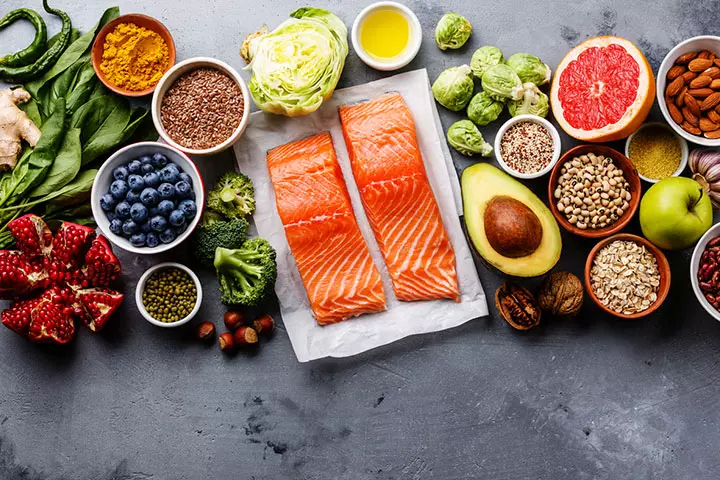
Image: IStock
A healthy dietary intake of omega-3 fatty acids may reduce the intensity of moderate and severe acne in teens (13). Omega-3 fatty acids might reduce the production of inflammatory compounds in the body and the overproduction of skin cells. This could, eventually, minimize the chances of an acne breakout.
Some healthy sources of dietary omega-3 fatty acids are fish, flax seeds, flaxseed oil, walnuts, tofu, and soybean oil.
6. Tea tree oil
Research suggests that tea tree oil may reduce the severity of acne among those with mild to moderate acne (14). Tea tree oil is an essential oil and comes from the leaves of Melaleuca alternifolia, or the tea tree (not related to tea). A study found that the application of 5% topical tea tree oil can help reduce the intensity of acne (15). Tea tree oil may work slowly, and some experts state that it may require three months of use to show visible results (16).
Diluting tea tree oil with water at home may be risky since high or uncontrolled quantities of the oil may cause skin problems. For instance, some people may develop dermatitis rash or skin irritation on contact with tea tree oil (17).
Therefore, it is safer to use tea tree oil-based gels and face wash available over the counter since they are likely to contain a measured and safe quantity of tea tree oil.
7. Green tea
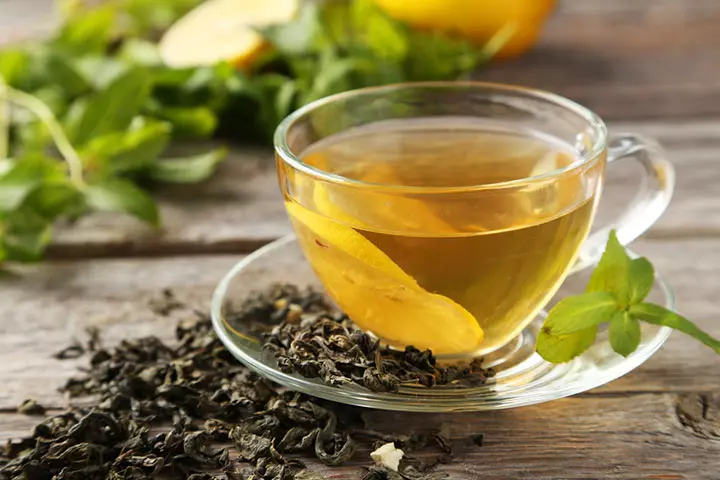
Image: Shutterstock
Some studies observed that topical application of gels or creams with green tea extract tends to reduce the amount of sebum produced by the sebaceous glands (18) (19). This is due to the presence of a group of compounds called polyphenols in green tea.
Polyphenols act on the oils in the sebum to reduce their quantity. It is not known whether green tea can work in the case of severe acne and if it is always effective. However, research shows that green tea may be helpful in cases of mild to moderate acne.
Green tea is quite readily available and worth a try.
How to apply it:
You can steep green tea in hot water as you would when you make it for drinking. Let the tea cool and then apply it to the affected area with a cotton ball. Pat dry with a towel. You can try it once a day.
Besides topical application, green tea intake may also help combat acne issues in some cases. Rashmi Sooriyabandara, a licensed counselor, psychotherapist, and blogger, vouches for green tea benefits and says, “The main reason I drink green tea is for hydration. A warm mug of it can calm me instantly. But with time, I can promise you it will do a great change on your skin. I have seen a dramatic change in my acne, and it also helped with my skin texture as a whole (i).”
8. Avoid dairy
Milk may expose a teen to hormones and other compounds that may exacerbate teenage acne (20). Health experts do acknowledge that dairy products can cause acne in some individuals (21). Besides the likely presence of hormones, it is not known how and why dairy may cause acne.
However, experts at the University of Southern California says, “Most dermatologists don’t believe food can affect conditions like acne, but if the patient swears it, then we always say if you believe that, then just avoid it.” (22).
Avoid dairy for a month or more, and observe if there is any difference. If you notice the acne diminishing and the skin improving without dairy in the diet, then your child can permanently stay away from dairy products. At the same time, make sure your child is consuming dairy alternatives to keep up with the nutritional requirements.
9. Low glycemic diet
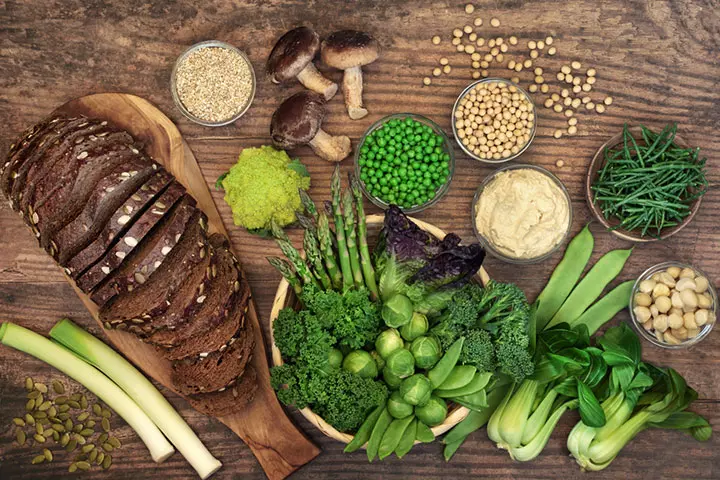
Image: Shutterstock
Glycemic index (GI) tells how quickly or slowly the blood sugar rises after consumption of a food item. Glycemic load tells you how high blood sugar can go after consuming a serving of the food item (23) (24). The American Academy of Dermatology states that a low-glycemic diet may reduce the number of acne breakouts (25).
The foods that usually have high GI and GL are the ones with added sugar. For example, soda, fruit juices with added sugar, confectionery, fried and sugary desserts, and other sugary products have a high GI. Some other foods that may cause the blood sugar to rise quickly are white bread, puffed rice, and potato chips.
Despite the academy’s recommendation, it is not known if avoiding foods with a high glycemic rating can relieve acne for sure. An elaborate study found no link between glycemic index and acne. Another study, conducted to determine the effect of GI of carbohydrates on acne, stated that there was not much difference in the improvement of acne with a low GI diet and high GI. However, a trend of improved acne reduction when on low GI diet was observed. But researchers say that they could not draw a conclusion owing to certain limitations in the research (26).
Nevertheless, foods with a high glycemic rating are mostly unhealthy (soda, fried fast food, sugary cereal) and should be avoided. Minimizing their serving size and increasing the servings of high-fiber whole grain, fruits, and vegetables is worth a try for reducing teenage acne.
10. Manage stress
Emotional and mental stress does not cause acne but may aggravate existing acne (27) (28). Research suggests that the sebaceous glands may be affected by the corticotropin-releasing hormone, a stress hormone in the body (29). The hormone could lead to excess sebum production, thus increasing the likelihood of acne.
Minimizing emotional stress is essential for teenagers, considering that they also go through several physical changes at this age. Having acne may add to the stress, as they become conscious of their appearance. Spending time with family and talking to the parents about what is stressing them out can be relaxing. Another way to beat stress is to stay physically active.
11. Exercise
Exercise can cause the adrenal glands to produce fewer hormones that trigger acne flare-ups (30). Regular exercise can also bring down the levels of stress hormones that could cause acne (31). Exercise has a positive impact on a teenager’s overall health and is worth a try for controlling acne.
12. Apple cider vinegar
Apple cider vinegar (ACV) is known for its demonstrated anti-microbial properties. Numerous studies have highlighted ACV’s ability to combat acne-causing bacteria due to its acetic acid content (32) (33). People with oily or acne-prone skin often find it pretty helpful. One may use ACV as a toner, spot treatment, or facial cleanser, as it provides various benefits for the skin, including balancing its pH, exfoliating, reducing dark spots, and boosting circulation (34).
To treat acne with apple cider vinegar, combine one part of ACV with three parts water. After cleansing the skin, gently apply the mixture to the acne spots using a cotton ball. Wait for 30 seconds, then wash it off (32).
Frequently Asked Questions
1. What foods cause pimples?
The exact relationship between food and acne is unclear, but some research studies have established an association between acne and drinking milk. However, the evidence from such studies is limited since it is based on questionnaires on the memory of food intake (35). Nevertheless, eating healthy could promote skin health.
2. What does honey do to a pimple?
Applying honey to a pimple or on the face may help reduce inflammation. Honey is known for its antibacterial properties and immunomodulatory effects. It also promotes skin growth and healing (36).
3. Can toothpaste remove pimples?
Some may suggest applying toothpaste to remove pimples. However, experts do not recommend the application of toothpaste to the skin since it may contain ingredients that can hurt your skin. Instead, use acne ointments, creams, or gels with salicylic acid and benzoyl peroxide. You may also ask your healthcare provider for a prescription medicine to treat acne (37).
4. Which drink is good for pimples?
Water is the best drink you can consume to keep your skin moisturized and healthy. Adequate water intake helps cleanse the skin, unclog the pores, and remove dead skin cells that can cause acne (38).
5. At what age do pimples stop growing?
Predicting how long acne will last can be challenging. Acne may improve in some teens as they reach their twenties, but some may have it in their twenties and later as well. Following a healthy lifestyle, good skincare hygiene, and taking acne medications, if needed, may improve the condition in most cases (39).
6. Is ice good for pimples?
Although there is a lack of specific evidence, a few studies suggest that ice may help lighten acne scars (40).
7. Is it normal for teenagers to have a lot of acne?
Acne is among the most common skin conditions in puberty, and around 15-30% of teens may have moderate to severe acne during adolescence. It usually disappears around the age of 20, and the severity of acne may vary among teens (41).
What may seem like a minor issue to you may be a big deal to your teenage boy or girl. Puberty brings about different physical and emotional changes, and pimples are one of them. This is when they may get very concerned about their appearance and looks, which is completely normal. So before resorting to medicines or supplements, you may give them some skin care tips for teens and teach them how to get rid of teenage pimples naturally. Since it is mostly due to hormonal fluctuations, they tend to subside with age. But if your teen acne persists, you may consult a doctor.
Infographic: Home Remedies For Acne in Teenagers
Teenage acne is more than a typical adolescent complaint. It can interfere with their daily lives, hamper their self-confidence, and sometimes even be painful. So if you have a teenager struggling with acne, share this infographic with them. The list below has some of the most effective ways to reduce and prevent acne problems. Illustration: Momjunction Design Team

Illustration: Simple Home Remedies To Deal With Teenage Acne

Image: Dalle E/MomJunction Design Team
Your teen may get a bought of acne as they hit puberty. Do not worry this is a normal occurrence. Watch this informative video to learn about the causes of teenage acne and how it can be cured.
Personal Experience: Source
MomJunction articles include first-hand experiences to provide you with better insights through real-life narratives. Here are the sources of personal accounts referenced in this article.
i. 10 natural beauty remedies I swear by.https://hipogirl.blogspot.com/2017/05/10-natural-beauty-remedies-i-swear-by.html
References
1. Food and Adolescent Acne; American Academy of Pediatrics
2. Marcelo Compos; Acne: What you need to know; Harvard Health Publishing
3. Teens and Acne Treatment; American Academy of Pediatrics
4. Ozuguz P et al., Evaluation of serum vitamins A and E and zinc levels according to the severity of acne vulgaris; National Center for Biotechnology Information
5. Dreno B et al., Multicenter randomized comparative double-blind controlled clinical trial of the safety and efficacy of zinc gluconate versus minocycline hydrochloride in the treatment of inflammatory acne vulgaris; National Center for Biotechnology Information
6. Michaëlsson G et al., Effects of oral zinc and vitamin A in acne; National Center for Biotechnology Information
7. 12 Tips to Combat Acne; Rush University
8. Zinc; National Institutes Of Health
9. El-Akawi Z et al., Does the plasma level of vitamins A and E affect acne condition?; National Center for Biotechnology Information
10. Vitamin A; Harvard T.H. Chan School of Public Health
11. Vitamin E; Harvard T.H. Chan School of Public Health
12. Elin Julianti et al., Antibacterial Activity of Ethanolic Extract of Cinnamon Bark, Honey, and Their Combination Effects against Acne-Causing Bacteria; National Center for Biotechnology Information
13. Khayef et al., Effects of fish oil supplementation on inflammatory acne; National Center for Biotechnology Information
14. Malhi HK et al., Tea tree oil gel for mild to moderate acne; a 12 week uncontrolled, open-label phase II pilot study; National Center for Biotechnology Information
15. Enshaieh S et al., The efficacy of 5% topical tea tree oil gel in mild to moderate acne vulgaris: a randomized, double-blind placebo-controlled study; National Center for Biotechnology Information
16. Philip D. Shenefelt et al., Herbal Treatment for Dermatologic Disorders; National Center for Biotechnology Information
17. Tea Tree Oil; National Institutes of Health
18. Elsaie ML et al., The efficacy of topical 2% green tea lotion in mild-to-moderate acne vulgaris; National Center for Biotechnology Information
19. Mahmood T et al., Outcomes of 3% green tea emulsion on skin sebum production in male volunteers; National Center for Biotechnology Information
20. Adebamowo CA et al., High school dietary dairy intake and teenage acne; National Center for Biotechnology Information
21. Acne; U.S. National Library of Medicine
22. 7 skin care myths you thought were true — USC doctors weigh in; University of Southern California
23. The lowdown on glycemic index and glycemic load; Harvard Medical School
24. Glycemic Index and Glycemic Load; Oregon State University
25. Can the right diet get rid of acne?; American Academy of Dermatology
26. C. Reynolds et al., Effect of the Glycemic Index of Carbohydrates on Acne vulgaris; National Center for Biotechnology Information
27. Common Myths About Acne; Wake Forest Baptist Health
28. Acne; University of Michigan
29. Corticotropin-releasing hormone; PNAS
30. Working Out To Healthier Skin; University of New Hampshire
31. Exercising to relax; Harvard Medical School.
32. What is Acne?; Association of Accredited Naturopathic Medical Colleges.
33. Acne Papules; Cleveland Clinic
34. Is apple cider vinegar good for your skin and hair?; University of Nebraska-Lincoln
35. The relationship of diet and acne; National Library Of Medicine
36. Pauline McLoone, et al; Honey: A Therapeutic Agent for Disorders of the Skin; National Library Of Medicine
37. Does Putting Toothpaste on a Pimple Make It Go Away?; Johns Hopkins Medicine
38. Can Drinking Water Improve Your Acne; The Harley Street Dermatology Clinic
39. How Long Does Acne Last?; Johns Hopkins Medicine
40. J E Fulton and A D Rahimi; (1999);Dermabrasion using CO2 dry ice; NCBI.
41. Acne: Overview; NCBI.
42. How Is Teen Acne Different from Adult Acne?; The American Acne Association
43. Prevent, Treat and Overcome Teenage Acne; Children’s Hospital Los Angeles
Community Experiences
Join the conversation and become a part of our nurturing community! Share your stories, experiences, and insights to connect with fellow parents.
Read full bio of Dr. Vivek Goswami
Read full bio of Dr. Ritika Shah
Read full bio of Swati Patwal
Read full bio of Ghazia Shah





